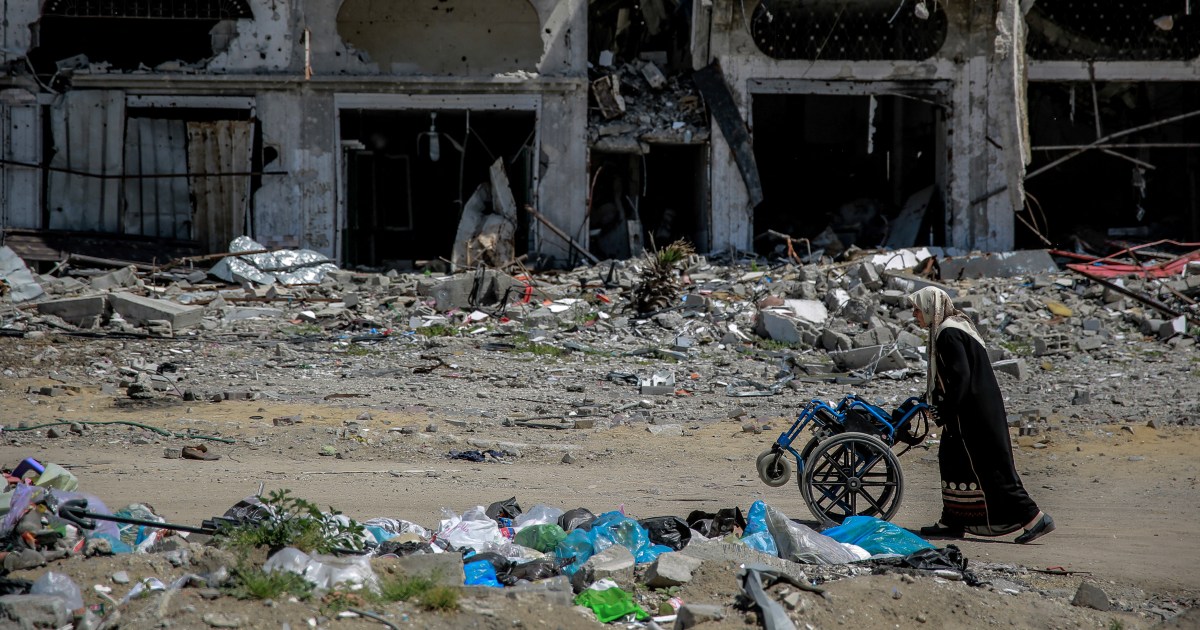
Kent Campbell, a key figure in the global fight against malaria – particularly in Africa, where he led an innovative program to provide mosquito nets to protect rural villagers from the mosquitoes that spread the disease – died on February 20 in Oro Valley, Arizona. a suburb of Tucson. He was 80.
His death in a nursing facility was due to complications from cancer, his children said.
As head of the Malaria Division of the Centers for Disease Control and Prevention from 1981 to 1993 and later as a consultant to UNICEF and the Bill & Melinda Gates Foundation, Dr. Campbell credited with helping save lives on multiple continents.
In Zambia, where he worked with the Gates Foundation in 2005 on a program to distribute bed nets and newer antimalarial drugs, malaria cases halved within three years. The program was later expanded to more than 40 other African countries.
“His legacy in my country is to be one of the people who made a great contribution to the control and prevention of malaria,” said Kafula Silumbe, a Zambian public health specialist who worked closely with Dr. Campbell collaborated in an interview. “It was a collaborative effort, but he was definitely part of that initial push.”
Tall and lanky, with a Southern accent that betrayed his Tennessee upbringing, Dr. Campbell reflected on a four-decade career in public health.
In 1972, during his pediatric residency in Boston, he joined the CDC as a conscientious objector to the Vietnam War. Shortly thereafter, he was sent to Sierra Leone to help investigate an outbreak Lassa fevera virulent hemorrhagic virus.
“I had never heard of Lassa fever,” he said a video story from the CDC “I probably couldn’t even spell it if I was asked.”
He had little to no training in the importance or use of personal protective equipment. To recover from the intense heat, he drilled holes in his breathing apparatus, which he later admitted was a bad idea.
Hoping to learn more about Lassa fever, agency officials sent him to Ireland to conduct serology, or antibody, tests on nuns who had previously worked in Sierra Leone. He traveled there with his wife, Elizabeth (Knight) Campbell, whom he had married in 1966.
A few days later, he nearly collapsed due to severe headaches, high fever, and an excruciating sore throat.
Afterwards Dr. Campbell and his wife to London so that he could be treated at a hospital with expertise in tropical diseases. The episode then took a surreal turn: When U.S. officials sent a military transport plane to pick up the couple, they carried a spare Apollo space capsule in it, with the Campbells riding in it as a precaution.
“Looking back, it’s not clear whether I had Lassa fever,” said Dr. Campbell. “But obviously I didn’t die.”
After a break in life and a newfound appreciation for disease hunting, he remained at the CDC. In 1973, he moved to El Salvador to address malaria, which had been virtually eradicated by global health authorities and aid groups.
“He was outraged by the unfairness and unfairness of things,” said Laurie Garrett, who wrote about Dr. in her 1994 book “The Coming Plague: Newly Emerging Diseases in a World Out of Balance.” Campbell wrote in an interview. “It just didn’t seem right to him that a scourge like malaria, which kills millions of people every year, attracted no investment, no concern and no global attention because most of the people who died from it were poor.”
Carlos Clinton Campbell III was born on January 9, 1944 in Knoxville, Tennessee. His father was a life insurance agent and his mother, Betty Ann (Murphy) Campbell, ran the household. His parents wanted to name him Clint, but his younger sister Ann had difficulty pronouncing the name and he ended up being called Kent.
He became interested in medicine at an early age after his sister and mother both died of cancer – Ann when she was five, her mother when he was in high school.
He studied biology at Haverford College in Pennsylvania and graduated in 1966. He earned his medical degree from Duke University in 1970 and earned a master’s degree in public health from Harvard University after completing his residency in pediatrics.
Dr. Campbell traveled all over the world, from public health corridors to remote villages and back.
“He had a deceptive demeanor because of his southern, laconic appearance,” Ms. Garrett said. “Almost every time you walked into his office, these huge, long legs would come up on the desk and he would lean back in his chair. And because it’s so big, it would automatically fill, you know, 12 feet of space.”
This made him seem relaxed.
“But once he got going, you could feel everything boiling to the surface,” she added. “He was incredibly impatient, and I think that drove him to ask big questions and take bold steps to help.”
Following his work at the CDC, Dr. Campbell helped establish a public health school at the University of Arizona and advised several global health organizations. In 2005 he joined AWAYa Seattle-based health justice nonprofit, as director of the Gates Foundation-funded malaria program in Africa.
As malaria became resistant to the most common drug treatments, he focused on prevention.
“The vector in Africa is basically a single species called Anopheles gambiae, which is distributed across the entire continent,” he said in one interview with AllAfrica, a pan-African news organization. “It’s like the superstar among channels.”
Two years after the bed net program began in Zambia, the country saw a 29 percent decrease in child mortality, according to PATH.
“To put this in perspective, there is nothing like it that reflects the death toll malaria has caused in Zambia and the effectiveness of bed nets in curbing transmission,” says Dr. Campbell told All of Africa. “That was all it really took. It was simply remarkable. During transmission season, the clinics were empty.
He is survived by his wife; his children, Dr. Kristine Campbell and Dr. Patrick Campbell; his brothers Robert and John Campbell; his stepsisters Melissa Hansen and Rebecca Arrants; and four grandchildren.
Dr. Campbell retired from PATH in 2015.
“I didn’t set out to fight this infection and disease.” he wrote his professional career. “In reality, it chose me.”
He added: “We have chosen not to listen to the naysayers.”






Recent Comments